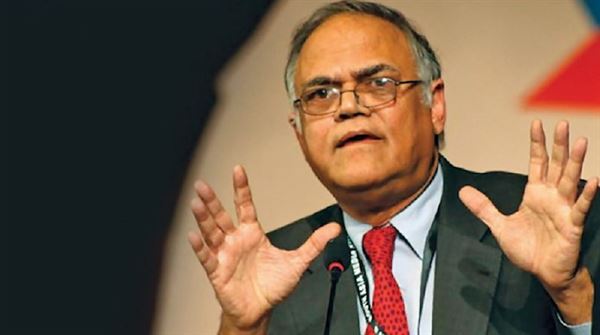A former Pakistani minister has called for building a global alliance to create awareness about the issue of Jammu and Kashmir, which is under a near-
A former Pakistani minister has called for building a global alliance to create awareness about the issue of Jammu and Kashmir, which is under a near-complete lockdown since Aug. 5 when India revoked autonomy of the region.
Talking to Anadolu Agency, Javed Jabbar, former Pakistani information minister and communication expert, expressed need to strike alliance with countries in South America, Europe and Africa, based on humanitarian issue, values and internationally recognized principles to create a global audience for the cause of Kashmir.
Acknowledging that the Kashmir solidarity campaign launched by his country, did not receive enough global attention, former minister admitted that it was due to a negative image of Pakistan. “Because unfortunately, over the last two to three decades, Pakistan has not attempted to change its image from a very negative image to what it deserves to be seen,” he said.
Jabbar, who is also an avid writer, said creating a strong international movement was vital to resolve the Kashmir crisis.
“There should be a continuous campaign without a closure on the need to give people the right to self-determination without being discouraged or diverted by the fact that India is thriving market and a big force,“ he said.
Agreeing that the move requires a lot of public and official diplomacy, he emphasized the need for projection both in social and conventional media on a sustained basis. “If this is done on sustained basis for 10-15 years, inshallah, the situation can be changed for the better,“ said Jabbar, who is also a leading advertising executive.
Pakistani politician, who is also writer and producer of a 2008 award-winning film Ramchand Pakistani, said the people in Kashmir are not demanding territory but just right to choose.
“Hold the referendum under the UN auspices. Pakistan will not interfere, India should not interfere and let the people decide. And that is the best way to resolve the issue,” he said referring to the issues of East Timor and South Sudan, which were resolved by applying the principle of referendum.
Hails Turkey, Malaysia stand
Former minister also hailed Turkey and Malaysia for their forthright stand by openly condemning Indian actions. He, however, admitted that some Muslim countries did not raise their voice against New Delhi’s Kashmir move because they have “material self interest in promoting economic and other relations with India,” which represents a big economy.
The politician, who has roots back to Indian city of Hyderabad, cautioned that New Delhi’s move will have a long-term effect not only for India, but for the whole region.
The special provisions in the Indian constitution also protected the region’s citizenship law, which barred outsiders from settling in and owning land in the territory, thus protecting its demographic character.
“It may not be visible immediately” because of the presence a vast number of Indian troops in the area. But the whole Kashmiri generation will grow up with this memory of hurt,” he said.
India deployed more than 800,000 troops in the Kashmir valley, which has around 8 million inhabitants.
Several rights groups including the Human Rights Watch and Amnesty International have repeatedly called on India to lift restrictions and release political detainees.
Iran-Saudi Arabia negotiations
On Pakistani Prime Minister Imran Khan’s recent role to mediate between Saudi Arabia and Iran, the veteran politician said reduction of tensions in the Middle East is in Pakistan’s own interest.
Khan visited Tehran and Riyadh earlier this month to defuse rising tensions in the region. The outcome of the meeting has not yet been disclosed. Jabbar said Pakistan has strong economic relations with both countries.
“So apart from the fact that they are fellow Muslim nations and our immediate neighbors, it is even more vital for our own interest to try and bring about reconciliation,” he added. While agreeing that there is uncertainty about the ultimate outcomes of the mediation, he argued that dialogue was the only way to break the ice.
